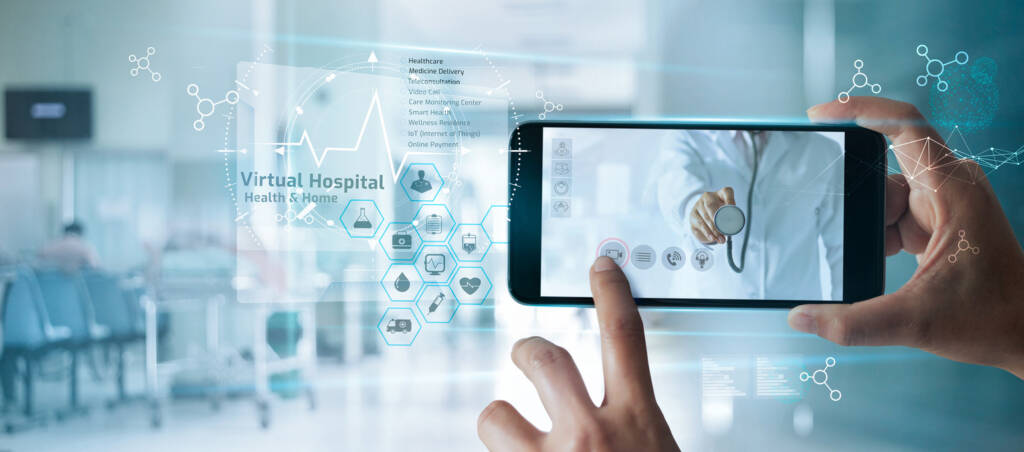
A digital, pervasive and intelligent system of care and prevention
Introduction to the project
The COVID-19 pandemic, with mobility restrictions and limitations to face to face encounters also in the healthcare sector, has led to the development and adoption of telemedicine platforms and solutions to overcome such restrictions and provide care to people in need. Such solutions and platforms, however, have often been developed in a proprietary manner and vertically for the specific medical branch.
e-CARE proposes a unifying approach to the future of healthcare by studying, designing and testing a shared architecture for a digital health system implementing the vision of pervasive care and prevention, through an interoperable IT platform able to support diverse verticals and integrating digital support to care, Artificial Intelligence, and IoT.
e-CARE is a strongly multidisciplinary project bringing together IT, legal, social, management and economics expertise as well as several areas of medicine. The project is partially funded by the Università degli Studi di Milano, PSR 2021 Line 6 GSA (Grandi sfide di Ateneo), and responds to the theme “Prevention, sustainability and efficacy of care: a distributed virtual hospital for Italy”.

Objective
A “virtual hospital” implemented first at regional level, designed for extension at national level is the overarching objective of e-CARE: the hospital of the future, digitally connected with the peripheral system of pharmacies, clinics, nursing homes, as well as with the homes of citizens and patients.
Development of a digital infrastructure for the virtual hospital
Experimental development of vertical clinical pilots
Evaluation of management, socio-economic impacts, and legal aspects
Approach

Some pilots have started in e-CARE benefitting from additional funding coming from the National Recovery and Resilience Plan (PNRR) funded by the European Union – NextGenerationEU. Funded projects currently contributing to the implementation of the e-CARE pilots are MUSA – Multilayered Urban Sustainability Action and SOLITAIRE – Digital interventions for Social isOLation In youThs And theIR familiEs.
Technologies
- Wearable and mobile devices, environmental sensors, medical devices, vocal interfaces
- Deep learning algorithms for image and signal analysis, explainable AI, pattern recognition
- Data protection techniques
- Cloud and edge computing technologies

Impact
e-CARE has the potential for significant impact on the new telemedicine services, also in the directions/areas indicated in Mission 6 of the PNRR (National Plan for Recovery and Resilience):
- reduce the current geographical and territorial gaps in health terms thanks to the harmonization of standards of care guaranteed by technology;
- guarantee a better “care experience” for citizens and patients;
- improve the level of efficiency of the regional health systems through the promotion of home assistance and remote monitoring protocols.

